News + Media
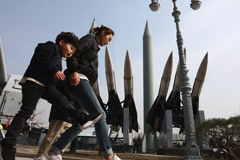 |
In the NewsMay 6, 2019North Korea tested a missile over the weekend. The Trump admin flubbed the response.Alex WardVox“Even if internally the US administration accepted that the missile-testing moratorium applied only narrowly to ICBMs, as Kim has publicly stated, don’t say it,” Narang told me. “At least stick with the vague language of ‘long-range missiles’ to cover the weapons that threaten our forces and allies in the region.” “The question will be whether this test was a one-off or whether it becomes a concerted effort to gradually escalate the range of missile tests through the end of the year to see how much Trump actually loves Kim,” he continued. |
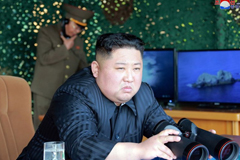 |
In the NewsMay 5, 2019North Korea weapons test may have included ballistic missileJihye LeeBloomberg“Kim Jong Un may be starting his ‘push-the-line’ strategy, gradually seeing how much Trump will turn a blind eye to,” said Vipin Narang, an associate professor of political science at MIT and a member of its security studies program. “Not good.” |
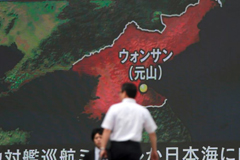 |
In the NewsMay 3, 2019Seoul: North Korea tests short-range projectilesWilliam GalloVOA NewsTesting a short-range ballistic missile “might skirt the line” on that moratorium, says Vipin Narang, a nuclear expert and professor at MIT. “Kim has stated (the moratorium) only applies to ICBMs, while the U.S. believes it applies more broadly,” Narang says. “It’s enough to signal slightly greater concern but giving the U.S. an out if it wants to, to dismiss it as not a violation of the moratorium.” |
 |
précisMay 3, 2019précis Interview: R David Edelman"Public policy that happens in a vacuum, without any engagement with thought leadership and academia, is usually devoid of history, context, and evidence," explains R David Edelman, director of the MIT Project on Technology, the Economy, & National Security. Policy implications of technological change and his forthcoming book on the international dimensions of cybersecurity are among the topics in this interview. |
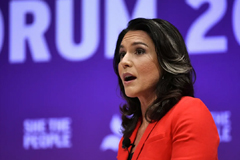 |
In the NewsMay 2, 2019Robots, war, climate: is apocalyptic rhetoric dangerous for Democratic candidates?Josh WoodThe GuardianVipin Narang, a professor of political science and a nuclear proliferation expert at MIT, says that in contrast with Gabbard’s statements, the US and the world faced a much greater threat of nuclear catastrophe during the cold war. “We probably have more flash points [today], but we traded a smaller risk of a world-ending event for maybe a larger chance of nuclear use,” he said. |
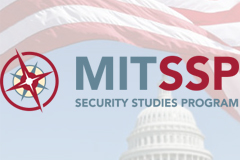 |
News@E40May 1, 2019SSP Congressional MeetingOn April 17-19, the Security Studies Program hosted its fifth biennial Senior Congressional and Executive Branch Staff Seminar, titled “Regions and Rivals: American Strategy In A Time Of Uncertainty.” |
 |
News ReleaseApril 30, 2019Saudi scholar and activist Hala Aldosari joins CIS as the Robert E Wilhelm FellowHala Aldosari, a Saudi scholar and activist in women’s rights in Arab societies, violence against women, and the “guardianship” system in Saudi Arabia, joins the MIT Center for International Studies (CIS) as its Robert E Wilhelm Fellow. |
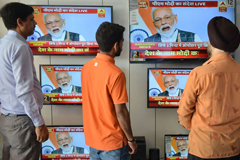 |
In the NewsApril 27, 2019India slips further behind China during first five years of ModiIain MarlowBloombergEven Modi’s announcement of the anti-satellite missile test will be mostly useless against China, according to Vipin Narang, an MIT associate political science professor. “Not only does China have more satellites that India would likely have to kill, but China may have an advantage in killing Indian satellites,” Narang said. |
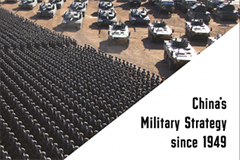 |
In the NewsApril 24, 2019“Active Defense” by Taylor FravelPrinceton University PressTaylor Fravel's newly released book illuminates the nation’s past and present military goals and how China sought to achieve them, and offers a rich set of cases for deepening the study of change in military organizations. |
 |
In the NewsApril 18, 2019MIT-Lockheed Martin Seed Fund launchesMISTI MIT NewsCollaboration between Lockheed Martin and MISTI will enable MIT faculty and students to collaborate, research, and intern in Israel, Germany, and beyond. |

